ORGANIZING COMMITTEE
Glenda Ahhaitty (Cherokee)
Acting Director, American Indian Counseling Center
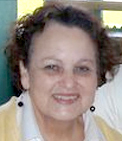 Ms. Ahhaitty is an enrolled member of the Cherokee Nation of Oklahoma and is originally from Copan, Oklahoma. She has lived in the Southern California area since 1954 and has worked in many capacities, including executive director of the Los Angeles City/County American Indian Commission, DMH volunteer services, and coordinator for DMH hearing impaired clients interpreter service. Together with her family she has been an active member of the Indian community in Southern California and in her family's home communities in Oklahoma. She has had the honor of working in leadership positions on behalf of American Indian women and served from more than ten years as an appointee of the Secretary of Commerce as a member of US Census Advisory Committee on the American Indian population.
Ms. Ahhaitty is an enrolled member of the Cherokee Nation of Oklahoma and is originally from Copan, Oklahoma. She has lived in the Southern California area since 1954 and has worked in many capacities, including executive director of the Los Angeles City/County American Indian Commission, DMH volunteer services, and coordinator for DMH hearing impaired clients interpreter service. Together with her family she has been an active member of the Indian community in Southern California and in her family's home communities in Oklahoma. She has had the honor of working in leadership positions on behalf of American Indian women and served from more than ten years as an appointee of the Secretary of Commerce as a member of US Census Advisory Committee on the American Indian population.
At present, Ms. Ahhaitty is the Acting Director of the American Indian Counseling Center. The Center is a directly operated clinic of the Los Angeles County Department of Mental Health providing culturally sensitive mental health services to American Indian elders, adults, children and families. Services include individual and couple therapy, child and adolescent therapy, family therapy, parenting education groups, dual diagnosis treatments, crisis intervention, case management, community outreach and education, professional trainings and internships.
Miguel E. Gallardo, Psy.D.
Assistant Professor, Graduate School of Education and Psychology, Pepperdine University
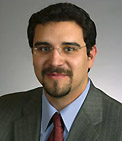 Dr. Gallardo currently serves as an Assistant Professor of Psychology at Pepperdine University’s Graduate School of Education and Psychology and is actively involved in the field of psychology. Dr. Gallardo’s Doctoral Research Topic "A Culture Undiscovered: The Impact of Learning Disabilities on Racially and Ethnically Diverse Students," was a video project that intended to examine the interplay between culture and a learning disability diagnosis and has since received international distribution. He also has another educational video entitled: Understanding the Therapeutic Needs of Culturally Diverse Individuals with Disabilities. Dr. Gallardo is currently working on a research project that includes examining culturally responsive interventions with Mexican Americans in therapy. He has written and presented in the areas of Latino Mental Health, Latinos and substance abuse, integrative healthcare, and culture and disability. Dr. Gallardo is currently working on a book entitled “Clinical Casebook of Multicultural Psychology: Implementation of Culturally Proficient Treatment Strategies.”
Dr. Gallardo currently serves as an Assistant Professor of Psychology at Pepperdine University’s Graduate School of Education and Psychology and is actively involved in the field of psychology. Dr. Gallardo’s Doctoral Research Topic "A Culture Undiscovered: The Impact of Learning Disabilities on Racially and Ethnically Diverse Students," was a video project that intended to examine the interplay between culture and a learning disability diagnosis and has since received international distribution. He also has another educational video entitled: Understanding the Therapeutic Needs of Culturally Diverse Individuals with Disabilities. Dr. Gallardo is currently working on a research project that includes examining culturally responsive interventions with Mexican Americans in therapy. He has written and presented in the areas of Latino Mental Health, Latinos and substance abuse, integrative healthcare, and culture and disability. Dr. Gallardo is currently working on a book entitled “Clinical Casebook of Multicultural Psychology: Implementation of Culturally Proficient Treatment Strategies.”
He has also established a strong presence among psychology’s many associations including the Orange County Psychological Association, California Latino Psychological Association (CLPA), National Latina/o Psychological Association, American Psychological Association and the California Psychological Association (CPA). Dr. Gallardo is a community and social activist for the Chicano/Latino community in California and nationally. He is one of the founders and served as the first President of the CLPA and is Chair of the Chapter Development Committee for the National Latina/o Psychological Association. More recently, Dr. Gallardo was elected President-Elect of the CPA and will serve a three year term in this role.
Felicia Schanche Hodge, Dr.PH (Wailaki)
Professor, UCLA School of Nursing
Professor, UCLA School of Public Health
Director, UCLA Center on American Indian & Indigenous Research and Education
Website: http://www.nursing.ucla.edu/caire/
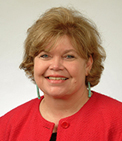 Felicia Schanche Hodge, Dr.P.H., is currently a Professor in the UCLA School of Nursing and the School of Public Health. She is also the Chair of American Indian Studies at UCLA. With over 30 years of experience in Native health care research, her area of expertise is intervention design and implementation to reduce chronic health problems in Native populations. Several of Dr. Hodge's studies designed culturally appropriate educational materials and tested the "Talking Circle" group support approach to education. These culturally appropriate educational materials were designed to provide accurate information on diabetes, nutrition, cancer and the importance of exercise in a group support model of education. Dr. Hodge is the founder and director of the Center for American Indian & Indigenous Research and Education (CAIRE). CAIRE's priorities are: 1) the identification of barriers impeding optimal health care utilization, 2) the development and testing of culturally sensitive health and social service intervention models, and 3) the recruitment and retention of Native students into institutions of higher learning.
Felicia Schanche Hodge, Dr.P.H., is currently a Professor in the UCLA School of Nursing and the School of Public Health. She is also the Chair of American Indian Studies at UCLA. With over 30 years of experience in Native health care research, her area of expertise is intervention design and implementation to reduce chronic health problems in Native populations. Several of Dr. Hodge's studies designed culturally appropriate educational materials and tested the "Talking Circle" group support approach to education. These culturally appropriate educational materials were designed to provide accurate information on diabetes, nutrition, cancer and the importance of exercise in a group support model of education. Dr. Hodge is the founder and director of the Center for American Indian & Indigenous Research and Education (CAIRE). CAIRE's priorities are: 1) the identification of barriers impeding optimal health care utilization, 2) the development and testing of culturally sensitive health and social service intervention models, and 3) the recruitment and retention of Native students into institutions of higher learning.
Rita Ledesma, Ph.D., LCSW (Oglala Lakota)
Associate Professor, Department of Social Work, California State University, Los Angeles
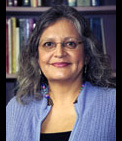 Dr. Ledesma is Associate Professor of Social Work at the California State University Los Angeles, School of Social Work. She has extensive direct practice and consultation experience working within the Latino and American Indian communities of Los Angeles, and regularly provides training and consulting services to community-based organizations. Her research interests include issues associated with American Indian/Alaska Native and Latino children and families, loss/bereavement, health policy, child welfare and bicultural/cross-cultural social work practice. Dr. Ledesma has also been an active member of the University community, making significant contributions in the development of the CSULA MSW program, leading health and education focused initiatives for the Edmund G. “Pat” Brown Institute of Public Affairs, and directing the CSULA PALS Program (Partnership for Academic Learning and Success), a peer-mentoring program for freshmen and transfer students. Dr. Ledesma received a B.A. in History, M.S.W., and Ph.D. in Social Welfare, all from the University of California, Los Angeles. She is also a licensed Clinical Social Worker.
Dr. Ledesma is Associate Professor of Social Work at the California State University Los Angeles, School of Social Work. She has extensive direct practice and consultation experience working within the Latino and American Indian communities of Los Angeles, and regularly provides training and consulting services to community-based organizations. Her research interests include issues associated with American Indian/Alaska Native and Latino children and families, loss/bereavement, health policy, child welfare and bicultural/cross-cultural social work practice. Dr. Ledesma has also been an active member of the University community, making significant contributions in the development of the CSULA MSW program, leading health and education focused initiatives for the Edmund G. “Pat” Brown Institute of Public Affairs, and directing the CSULA PALS Program (Partnership for Academic Learning and Success), a peer-mentoring program for freshmen and transfer students. Dr. Ledesma received a B.A. in History, M.S.W., and Ph.D. in Social Welfare, all from the University of California, Los Angeles. She is also a licensed Clinical Social Worker.
Vickie M. Mays, Ph.D., M.S.P.H.
Professor of Psychology
Professor of Health Services, UCLA School of Public Health
Director, UCLA Center for Research, Education, Training and Strategic Communication on Minority Health Disparities
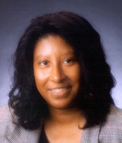 Dr. Mays is a Professor in the Department of Psychology in the College of Letters and Sciences, as well as a Professor in the Department of Health Services. Professor Mays is also the Director of the UCLA Center on Research, Education, Training and Strategic Communication on Minority Health Disparities. She teaches courses on health status and health behaviors of racial and ethnic minority groups, research ethics in biomedical and behavioral research in racial/ethnic minority populations, research methods in minority research, as well as courses on social determinants of mental disorders and psychopathology. Professor Mays' research primarily focuses on the mental and physical health disparities affecting racial and ethnic minority populations. She has a long history of research and policy development in the area of contextual factors that surrounding HIV/AIDS in racial and ethnic minorities. Other areas of research include looking at the role of perceived and actual discrimination on mental and physical health outcomes, particularly as these factors impact downstream disease outcomes. Her mental health research examines availability, access and quality of mental health services for racial, ethnic and sexual minorities. Dr. Mays developed and coordinated the New Orleans Mental Health Education and Training project after Hurricane Katrina. The purpose of this project was to 1) increase the capacity of mental health service providers and 2) train religious leaders from all denominations to recognize serious emotional distress and utilize local referrals. We will also conduct a workshop offering parents, teachers, and caretakers tips and helpful information to maximize the learning of children--many of whom are returning to school for the first time in a year.
Dr. Mays is a Professor in the Department of Psychology in the College of Letters and Sciences, as well as a Professor in the Department of Health Services. Professor Mays is also the Director of the UCLA Center on Research, Education, Training and Strategic Communication on Minority Health Disparities. She teaches courses on health status and health behaviors of racial and ethnic minority groups, research ethics in biomedical and behavioral research in racial/ethnic minority populations, research methods in minority research, as well as courses on social determinants of mental disorders and psychopathology. Professor Mays' research primarily focuses on the mental and physical health disparities affecting racial and ethnic minority populations. She has a long history of research and policy development in the area of contextual factors that surrounding HIV/AIDS in racial and ethnic minorities. Other areas of research include looking at the role of perceived and actual discrimination on mental and physical health outcomes, particularly as these factors impact downstream disease outcomes. Her mental health research examines availability, access and quality of mental health services for racial, ethnic and sexual minorities. Dr. Mays developed and coordinated the New Orleans Mental Health Education and Training project after Hurricane Katrina. The purpose of this project was to 1) increase the capacity of mental health service providers and 2) train religious leaders from all denominations to recognize serious emotional distress and utilize local referrals. We will also conduct a workshop offering parents, teachers, and caretakers tips and helpful information to maximize the learning of children--many of whom are returning to school for the first time in a year.
Faith McClure, Ph.D.
Professor, Department of Psychology, California StateUniversity, San Bernardino
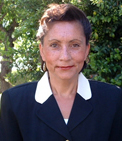 Dr. McClure is a Professor in the Psychology Department at California State University, San Bernardino. She grew up in South Africa during apartheid and received her Ph.D. in Clinical Psychology from the University of California, Los Angeles. Her counseling and research focuses on children, families, and adults, with a particular emphasis on factors that promote resilience in those who have experienced trauma. She has provided consultation and training to organizations serving the mental health needs of children and their families both in the United States and overseas. Her publications are in the areas of community and family violence, sexual abuse, and variables that affect treatment outcome. She is co-producer with Dr. Teyber of Challenging Therapeutic Interventions: A Student Training Video and co-author with Dr. Teyber of Casebook in Child and Adolescent Treatment: Cultural and Familial Contexts (Pacific Grove, CA: Thomson).
Dr. McClure is a Professor in the Psychology Department at California State University, San Bernardino. She grew up in South Africa during apartheid and received her Ph.D. in Clinical Psychology from the University of California, Los Angeles. Her counseling and research focuses on children, families, and adults, with a particular emphasis on factors that promote resilience in those who have experienced trauma. She has provided consultation and training to organizations serving the mental health needs of children and their families both in the United States and overseas. Her publications are in the areas of community and family violence, sexual abuse, and variables that affect treatment outcome. She is co-producer with Dr. Teyber of Challenging Therapeutic Interventions: A Student Training Video and co-author with Dr. Teyber of Casebook in Child and Adolescent Treatment: Cultural and Familial Contexts (Pacific Grove, CA: Thomson).
Carol Robinson-Zañartu, Ph.D.
Professor and Chair, Counseling and School Psychology, San Diego State University
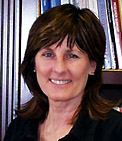 Dr. Robinson-Zañartu is Professor and Chair of the Department of Counseling and School Psychology at San Diego University. She specializes in issues of culture and equity in schools (especially Native American issues); systemic reform and restructuring; curriculum infusion of meaningful thinking skills; and alternative assessment within that context, especially dynamic assessment and its integration with ecological processes. Within the School Psychology Program she teaches or has taught the internship supervision sequence; advanced learning theory and assessment; portfolio development; foundation introduction course; seminar and practicum; advanced sequence in individual appraisal; Native American specialty seminar; and the advanced professional seminars. Dr. Robinson-Zañartu maintains ongoing involvement with the National Association of School Psychologists (NASP) program approval process as a folio reviewer, and consults with universities on program development. She has published more than thirty-five articles, reviews, chapters, or videos and made some 80 professional presentations that relate to these topics. She has directed federally funded projects in Native American education for some fifteen years.
Dr. Robinson-Zañartu is Professor and Chair of the Department of Counseling and School Psychology at San Diego University. She specializes in issues of culture and equity in schools (especially Native American issues); systemic reform and restructuring; curriculum infusion of meaningful thinking skills; and alternative assessment within that context, especially dynamic assessment and its integration with ecological processes. Within the School Psychology Program she teaches or has taught the internship supervision sequence; advanced learning theory and assessment; portfolio development; foundation introduction course; seminar and practicum; advanced sequence in individual appraisal; Native American specialty seminar; and the advanced professional seminars. Dr. Robinson-Zañartu maintains ongoing involvement with the National Association of School Psychologists (NASP) program approval process as a folio reviewer, and consults with universities on program development. She has published more than thirty-five articles, reviews, chapters, or videos and made some 80 professional presentations that relate to these topics. She has directed federally funded projects in Native American education for some fifteen years.
Kumea Shorter-Gooden, Ph.D.
Professor, Multicultural Community-Clinical Psychology Emphasis Area, California School of Professional Psychology,
Alliant International University, Los Angeles
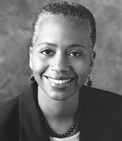 Dr. Kumea Shorter-Gooden is a Professor of the Multicultural Community/Clinical Psychology Emphasis Area at the California School of Professional Psychology (CSPP) at Alliant International University, Los Angeles. Prior to joining CSPP, Dr. Shorter-Gooden served as the director of the Monsour Counseling Center at The Claremont Colleges and Clinical Director of the Community Mental Health Council in Chicago. She is the co-author with Charisse Jones of Shifting: The Double Lives of Black Women in America (HarperCollins, September 2003, www.BlackWomenShifting.com), a winner of the 2004 American Book Awards. Dr. Shorter-Gooden has written numerous published articles and chapters on topics such as African American women and identity, psychotherapy with African Americans, and cultural diversity, and she is a Consulting Editor for Professional Psychology: Research and Practice. A Licensed Psychologist based in Pasadena, California, she has a private psychotherapy and organizational consultation practice, and is an active speaker and workshop leader around issues related to African American mental health, women’s issues, and multiculturalism and diversity.
Dr. Kumea Shorter-Gooden is a Professor of the Multicultural Community/Clinical Psychology Emphasis Area at the California School of Professional Psychology (CSPP) at Alliant International University, Los Angeles. Prior to joining CSPP, Dr. Shorter-Gooden served as the director of the Monsour Counseling Center at The Claremont Colleges and Clinical Director of the Community Mental Health Council in Chicago. She is the co-author with Charisse Jones of Shifting: The Double Lives of Black Women in America (HarperCollins, September 2003, www.BlackWomenShifting.com), a winner of the 2004 American Book Awards. Dr. Shorter-Gooden has written numerous published articles and chapters on topics such as African American women and identity, psychotherapy with African Americans, and cultural diversity, and she is a Consulting Editor for Professional Psychology: Research and Practice. A Licensed Psychologist based in Pasadena, California, she has a private psychotherapy and organizational consultation practice, and is an active speaker and workshop leader around issues related to African American mental health, women’s issues, and multiculturalism and diversity.
Monique Smith, Psy.D. (Choctaw)
Administrative Clinical Director, United American Indian Involvement
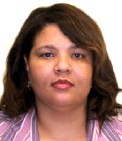 Dr. Monique Smith (Choctaw) has a Psy.D. in clinical psychology. She was the first American Indian to graduate with a doctorate degree from Pacific University’s School of Professional Psychology in Forest Grove, OR. Dr. Smith has an extensive background as a therapist working with American Indian children and adults. She has experience in assessment, evaluation, and crisis intervention in urban and rural American Indian communities. Dr. Smith has conducted research in her interest area, the utilization of mental health services among urban American Indians. She is currently the Administrative Clinical Director of United American Indian Involvement, Inc. Robert Sundance Family Wellness Center and Director of the Ah-No-Ven (healing) Home, a youth residential treatment facility for adolescent American Indian girls ages 14-17.
Dr. Monique Smith (Choctaw) has a Psy.D. in clinical psychology. She was the first American Indian to graduate with a doctorate degree from Pacific University’s School of Professional Psychology in Forest Grove, OR. Dr. Smith has an extensive background as a therapist working with American Indian children and adults. She has experience in assessment, evaluation, and crisis intervention in urban and rural American Indian communities. Dr. Smith has conducted research in her interest area, the utilization of mental health services among urban American Indians. She is currently the Administrative Clinical Director of United American Indian Involvement, Inc. Robert Sundance Family Wellness Center and Director of the Ah-No-Ven (healing) Home, a youth residential treatment facility for adolescent American Indian girls ages 14-17.
 Ms. Ahhaitty is an enrolled member of the Cherokee Nation of Oklahoma and is originally from Copan, Oklahoma. She has lived in the Southern California area since 1954 and has worked in many capacities, including executive director of the Los Angeles City/County American Indian Commission, DMH volunteer services, and coordinator for DMH hearing impaired clients interpreter service. Together with her family she has been an active member of the Indian community in Southern California and in her family's home communities in Oklahoma. She has had the honor of working in leadership positions on behalf of American Indian women and served from more than ten years as an appointee of the Secretary of Commerce as a member of US Census Advisory Committee on the American Indian population.
Ms. Ahhaitty is an enrolled member of the Cherokee Nation of Oklahoma and is originally from Copan, Oklahoma. She has lived in the Southern California area since 1954 and has worked in many capacities, including executive director of the Los Angeles City/County American Indian Commission, DMH volunteer services, and coordinator for DMH hearing impaired clients interpreter service. Together with her family she has been an active member of the Indian community in Southern California and in her family's home communities in Oklahoma. She has had the honor of working in leadership positions on behalf of American Indian women and served from more than ten years as an appointee of the Secretary of Commerce as a member of US Census Advisory Committee on the American Indian population.  Dr. Gallardo currently serves as an Assistant Professor of Psychology at Pepperdine University’s Graduate School of Education and Psychology and is actively involved in the field of psychology. Dr. Gallardo’s Doctoral Research Topic "A Culture Undiscovered: The Impact of Learning Disabilities on Racially and Ethnically Diverse Students," was a video project that intended to examine the interplay between culture and a learning disability diagnosis and has since received international distribution. He also has another educational video entitled: Understanding the Therapeutic Needs of Culturally Diverse Individuals with Disabilities. Dr. Gallardo is currently working on a research project that includes examining culturally responsive interventions with Mexican Americans in therapy. He has written and presented in the areas of Latino Mental Health, Latinos and substance abuse, integrative healthcare, and culture and disability. Dr. Gallardo is currently working on a book entitled “Clinical Casebook of Multicultural Psychology: Implementation of Culturally Proficient Treatment Strategies.”
Dr. Gallardo currently serves as an Assistant Professor of Psychology at Pepperdine University’s Graduate School of Education and Psychology and is actively involved in the field of psychology. Dr. Gallardo’s Doctoral Research Topic "A Culture Undiscovered: The Impact of Learning Disabilities on Racially and Ethnically Diverse Students," was a video project that intended to examine the interplay between culture and a learning disability diagnosis and has since received international distribution. He also has another educational video entitled: Understanding the Therapeutic Needs of Culturally Diverse Individuals with Disabilities. Dr. Gallardo is currently working on a research project that includes examining culturally responsive interventions with Mexican Americans in therapy. He has written and presented in the areas of Latino Mental Health, Latinos and substance abuse, integrative healthcare, and culture and disability. Dr. Gallardo is currently working on a book entitled “Clinical Casebook of Multicultural Psychology: Implementation of Culturally Proficient Treatment Strategies.”  Felicia Schanche Hodge, Dr.P.H., is currently a Professor in the UCLA School of Nursing and the School of Public Health. She is also the Chair of American Indian Studies at UCLA. With over 30 years of experience in Native health care research, her area of expertise is intervention design and implementation to reduce chronic health problems in Native populations. Several of Dr. Hodge's studies designed culturally appropriate educational materials and tested the "Talking Circle" group support approach to education. These culturally appropriate educational materials were designed to provide accurate information on diabetes, nutrition, cancer and the importance of exercise in a group support model of education. Dr. Hodge is the founder and director of the Center for American Indian & Indigenous Research and Education (CAIRE). CAIRE's priorities are: 1) the identification of barriers impeding optimal health care utilization, 2) the development and testing of culturally sensitive health and social service intervention models, and 3) the recruitment and retention of Native students into institutions of higher learning.
Felicia Schanche Hodge, Dr.P.H., is currently a Professor in the UCLA School of Nursing and the School of Public Health. She is also the Chair of American Indian Studies at UCLA. With over 30 years of experience in Native health care research, her area of expertise is intervention design and implementation to reduce chronic health problems in Native populations. Several of Dr. Hodge's studies designed culturally appropriate educational materials and tested the "Talking Circle" group support approach to education. These culturally appropriate educational materials were designed to provide accurate information on diabetes, nutrition, cancer and the importance of exercise in a group support model of education. Dr. Hodge is the founder and director of the Center for American Indian & Indigenous Research and Education (CAIRE). CAIRE's priorities are: 1) the identification of barriers impeding optimal health care utilization, 2) the development and testing of culturally sensitive health and social service intervention models, and 3) the recruitment and retention of Native students into institutions of higher learning. Dr. Ledesma is Associate Professor of Social Work at the California State University Los Angeles, School of Social Work. She has extensive direct practice and consultation experience working within the Latino and American Indian communities of Los Angeles, and regularly provides training and consulting services to community-based organizations. Her research interests include issues associated with American Indian/Alaska Native and Latino children and families, loss/bereavement, health policy, child welfare and bicultural/cross-cultural social work practice. Dr. Ledesma has also been an active member of the University community, making significant contributions in the development of the CSULA MSW program, leading health and education focused initiatives for the Edmund G. “Pat” Brown Institute of Public Affairs, and directing the CSULA PALS Program (Partnership for Academic Learning and Success), a peer-mentoring program for freshmen and transfer students. Dr. Ledesma received a B.A. in History, M.S.W., and Ph.D. in Social Welfare, all from the University of California, Los Angeles. She is also a licensed Clinical Social Worker.
Dr. Ledesma is Associate Professor of Social Work at the California State University Los Angeles, School of Social Work. She has extensive direct practice and consultation experience working within the Latino and American Indian communities of Los Angeles, and regularly provides training and consulting services to community-based organizations. Her research interests include issues associated with American Indian/Alaska Native and Latino children and families, loss/bereavement, health policy, child welfare and bicultural/cross-cultural social work practice. Dr. Ledesma has also been an active member of the University community, making significant contributions in the development of the CSULA MSW program, leading health and education focused initiatives for the Edmund G. “Pat” Brown Institute of Public Affairs, and directing the CSULA PALS Program (Partnership for Academic Learning and Success), a peer-mentoring program for freshmen and transfer students. Dr. Ledesma received a B.A. in History, M.S.W., and Ph.D. in Social Welfare, all from the University of California, Los Angeles. She is also a licensed Clinical Social Worker. Dr. Mays is a Professor in the Department of Psychology in the College of Letters and Sciences, as well as a Professor in the Department of Health Services. Professor Mays is also the Director of the UCLA Center on Research, Education, Training and Strategic Communication on Minority Health Disparities. She teaches courses on health status and health behaviors of racial and ethnic minority groups, research ethics in biomedical and behavioral research in racial/ethnic minority populations, research methods in minority research, as well as courses on social determinants of mental disorders and psychopathology. Professor Mays' research primarily focuses on the mental and physical health disparities affecting racial and ethnic minority populations. She has a long history of research and policy development in the area of contextual factors that surrounding HIV/AIDS in racial and ethnic minorities. Other areas of research include looking at the role of perceived and actual discrimination on mental and physical health outcomes, particularly as these factors impact downstream disease outcomes. Her mental health research examines availability, access and quality of mental health services for racial, ethnic and sexual minorities. Dr. Mays developed and coordinated the New Orleans Mental Health Education and Training project after Hurricane Katrina. The purpose of this project was to 1) increase the capacity of mental health service providers and 2) train religious leaders from all denominations to recognize serious emotional distress and utilize local referrals. We will also conduct a workshop offering parents, teachers, and caretakers tips and helpful information to maximize the learning of children--many of whom are returning to school for the first time in a year.
Dr. Mays is a Professor in the Department of Psychology in the College of Letters and Sciences, as well as a Professor in the Department of Health Services. Professor Mays is also the Director of the UCLA Center on Research, Education, Training and Strategic Communication on Minority Health Disparities. She teaches courses on health status and health behaviors of racial and ethnic minority groups, research ethics in biomedical and behavioral research in racial/ethnic minority populations, research methods in minority research, as well as courses on social determinants of mental disorders and psychopathology. Professor Mays' research primarily focuses on the mental and physical health disparities affecting racial and ethnic minority populations. She has a long history of research and policy development in the area of contextual factors that surrounding HIV/AIDS in racial and ethnic minorities. Other areas of research include looking at the role of perceived and actual discrimination on mental and physical health outcomes, particularly as these factors impact downstream disease outcomes. Her mental health research examines availability, access and quality of mental health services for racial, ethnic and sexual minorities. Dr. Mays developed and coordinated the New Orleans Mental Health Education and Training project after Hurricane Katrina. The purpose of this project was to 1) increase the capacity of mental health service providers and 2) train religious leaders from all denominations to recognize serious emotional distress and utilize local referrals. We will also conduct a workshop offering parents, teachers, and caretakers tips and helpful information to maximize the learning of children--many of whom are returning to school for the first time in a year. Dr. McClure is a Professor in the Psychology Department at California State University, San Bernardino. She grew up in South Africa during apartheid and received her Ph.D. in Clinical Psychology from the University of California, Los Angeles. Her counseling and research focuses on children, families, and adults, with a particular emphasis on factors that promote resilience in those who have experienced trauma. She has provided consultation and training to organizations serving the mental health needs of children and their families both in the United States and overseas. Her publications are in the areas of community and family violence, sexual abuse, and variables that affect treatment outcome. She is co-producer with Dr. Teyber of Challenging Therapeutic Interventions: A Student Training Video and co-author with Dr. Teyber of Casebook in Child and Adolescent Treatment: Cultural and Familial Contexts (Pacific Grove, CA: Thomson).
Dr. McClure is a Professor in the Psychology Department at California State University, San Bernardino. She grew up in South Africa during apartheid and received her Ph.D. in Clinical Psychology from the University of California, Los Angeles. Her counseling and research focuses on children, families, and adults, with a particular emphasis on factors that promote resilience in those who have experienced trauma. She has provided consultation and training to organizations serving the mental health needs of children and their families both in the United States and overseas. Her publications are in the areas of community and family violence, sexual abuse, and variables that affect treatment outcome. She is co-producer with Dr. Teyber of Challenging Therapeutic Interventions: A Student Training Video and co-author with Dr. Teyber of Casebook in Child and Adolescent Treatment: Cultural and Familial Contexts (Pacific Grove, CA: Thomson). Dr. Robinson-Zañartu is Professor and Chair of the Department of Counseling and School Psychology at San Diego University. She specializes in issues of culture and equity in schools (especially Native American issues); systemic reform and restructuring; curriculum infusion of meaningful thinking skills; and alternative assessment within that context, especially dynamic assessment and its integration with ecological processes. Within the School Psychology Program she teaches or has taught the internship supervision sequence; advanced learning theory and assessment; portfolio development; foundation introduction course; seminar and practicum; advanced sequence in individual appraisal; Native American specialty seminar; and the advanced professional seminars. Dr. Robinson-Zañartu maintains ongoing involvement with the National Association of School Psychologists (NASP) program approval process as a folio reviewer, and consults with universities on program development. She has published more than thirty-five articles, reviews, chapters, or videos and made some 80 professional presentations that relate to these topics. She has directed federally funded projects in Native American education for some fifteen years.
Dr. Robinson-Zañartu is Professor and Chair of the Department of Counseling and School Psychology at San Diego University. She specializes in issues of culture and equity in schools (especially Native American issues); systemic reform and restructuring; curriculum infusion of meaningful thinking skills; and alternative assessment within that context, especially dynamic assessment and its integration with ecological processes. Within the School Psychology Program she teaches or has taught the internship supervision sequence; advanced learning theory and assessment; portfolio development; foundation introduction course; seminar and practicum; advanced sequence in individual appraisal; Native American specialty seminar; and the advanced professional seminars. Dr. Robinson-Zañartu maintains ongoing involvement with the National Association of School Psychologists (NASP) program approval process as a folio reviewer, and consults with universities on program development. She has published more than thirty-five articles, reviews, chapters, or videos and made some 80 professional presentations that relate to these topics. She has directed federally funded projects in Native American education for some fifteen years. Dr. Kumea Shorter-Gooden is a Professor of the Multicultural Community/Clinical Psychology Emphasis Area at the California School of Professional Psychology (CSPP) at Alliant International University, Los Angeles. Prior to joining CSPP, Dr. Shorter-Gooden served as the director of the Monsour Counseling Center at The Claremont Colleges and Clinical Director of the Community Mental Health Council in Chicago. She is the co-author with Charisse Jones of Shifting: The Double Lives of Black Women in America (HarperCollins, September 2003,
Dr. Kumea Shorter-Gooden is a Professor of the Multicultural Community/Clinical Psychology Emphasis Area at the California School of Professional Psychology (CSPP) at Alliant International University, Los Angeles. Prior to joining CSPP, Dr. Shorter-Gooden served as the director of the Monsour Counseling Center at The Claremont Colleges and Clinical Director of the Community Mental Health Council in Chicago. She is the co-author with Charisse Jones of Shifting: The Double Lives of Black Women in America (HarperCollins, September 2003,  Dr. Monique Smith (Choctaw) has a Psy.D. in clinical psychology. She was the first American Indian to graduate with a doctorate degree from Pacific University’s School of Professional Psychology in Forest Grove, OR. Dr. Smith has an extensive background as a therapist working with American Indian children and adults. She has experience in assessment, evaluation, and crisis intervention in urban and rural American Indian communities. Dr. Smith has conducted research in her interest area, the utilization of mental health services among urban American Indians. She is currently the Administrative Clinical Director of United American Indian Involvement, Inc. Robert Sundance Family Wellness Center and Director of the Ah-No-Ven (healing) Home, a youth residential treatment facility for adolescent American Indian girls ages 14-17.
Dr. Monique Smith (Choctaw) has a Psy.D. in clinical psychology. She was the first American Indian to graduate with a doctorate degree from Pacific University’s School of Professional Psychology in Forest Grove, OR. Dr. Smith has an extensive background as a therapist working with American Indian children and adults. She has experience in assessment, evaluation, and crisis intervention in urban and rural American Indian communities. Dr. Smith has conducted research in her interest area, the utilization of mental health services among urban American Indians. She is currently the Administrative Clinical Director of United American Indian Involvement, Inc. Robert Sundance Family Wellness Center and Director of the Ah-No-Ven (healing) Home, a youth residential treatment facility for adolescent American Indian girls ages 14-17.